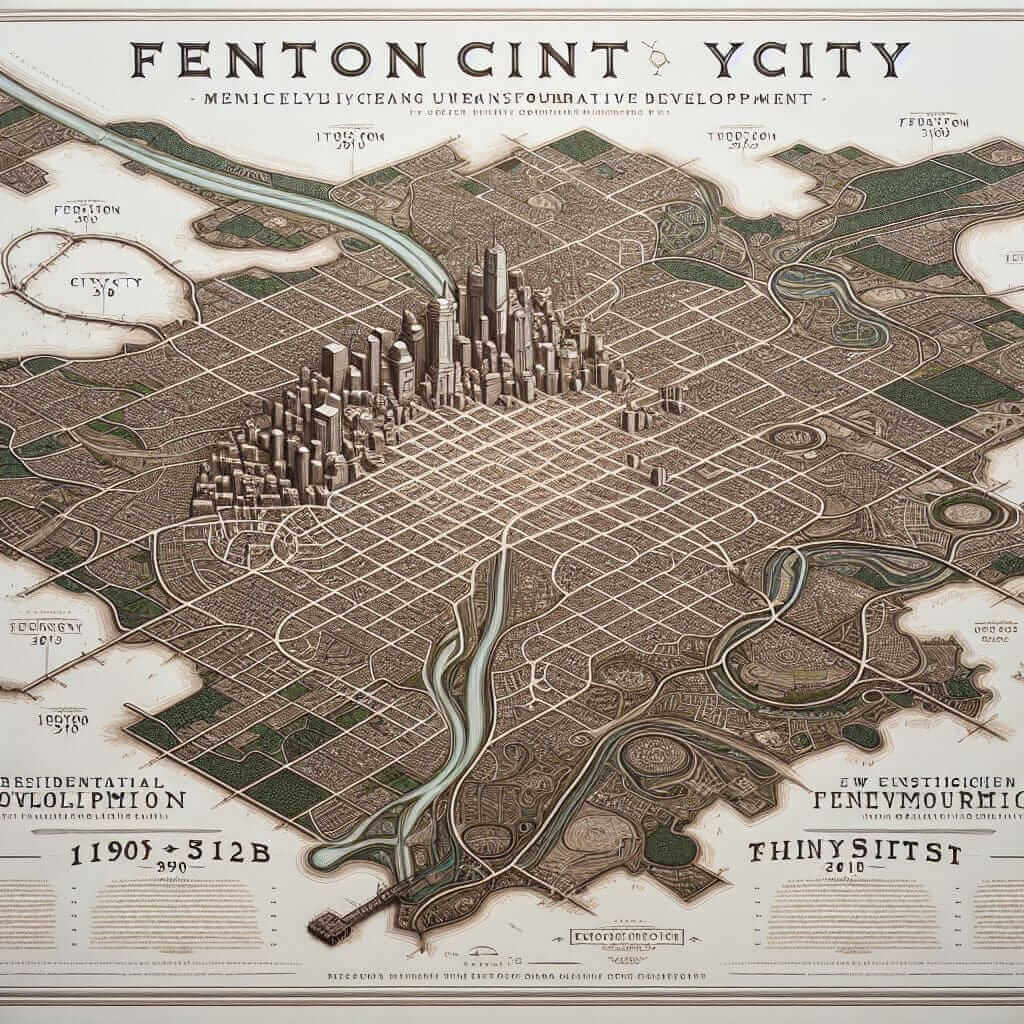As an experienced IELTS instructor with over two decades of experience, I often encounter students grappling with IELTS Writing Task 1, especially when describing changes depicted in maps or diagrams. A common theme is illustrating the transformation of a city over time, for instance, “how Fenton changed from 1990 to 2012.” This essay will equip you with the essential knowledge and strategies to effectively tackle such tasks and achieve a high band score.
Understanding the Task and Its Significance
Before delving into the specifics, it’s crucial to grasp the task’s objective. You are presented with two visuals, typically maps, showcasing a city (like Fenton) at two distinct points in time (1990 and 2012). Your mission is to write a 150-word report comparing and contrasting these visuals, highlighting the key changes, and maintaining a clear, concise, and organized structure.
This task assesses your ability to:
- Interpret visual information: Extract relevant details from maps or diagrams.
- Compare and contrast: Identify similarities and differences between the two time periods.
- Organize information logically: Structure your report coherently with a clear overview, body paragraphs, and (optionally) a conclusion.
- Use appropriate vocabulary: Employ a range of vocabulary related to change, development, and geographical features.
- Maintain grammatical accuracy: Demonstrate control over grammar and sentence structures.
Approaching the “Fenton 1990 vs. 2012” Essay
Let’s break down the steps to craft an impressive response:
1. Analyze the Visuals:
- Identify Key Features: What are the main elements in each map? This might include residential areas, industrial zones, parks, roads, rivers, etc.
- Spot the Changes: Carefully compare the 1990 and 2012 maps. Note any additions, removals, or modifications. For instance:
- Expansion: Has the residential area grown? Did new industrial zones emerge?
- Reduction: Were any forests cleared? Did any factories close down?
- Introduction: Are there new features like shopping malls or airports?
- Transformation: Did farmland convert into residential areas? Did roads get upgraded?
2. Structure Your Response:
-
Paragraph 1: Introduction
- Briefly paraphrase the task instruction. For example: “The maps illustrate the transformations Fenton underwent between 1990 and 2012.”
-
Paragraph 2: Overview
- Provide a general overview of the most significant changes. Don’t delve into specifics yet. For example: “Overall, Fenton experienced substantial development, particularly in its residential and commercial sectors, while some green spaces were reduced.”
-
Paragraph 3 & 4: Detailed Analysis
- Choose two or three significant changes and dedicate a paragraph to each.
- Use clear language to describe the changes, their location, and their extent. For example: “The most notable alteration is the considerable expansion of the residential area south of the river. In 1990, this area consisted primarily of farmland, but by 2012, it had been completely developed into a large housing estate.”
-
Conclusion (Optional):
- A brief concluding sentence can be added to summarize the overall impact of the changes. However, it’s not mandatory in a Task 1 report.
3. Employ Precise Vocabulary:
- Verbs: transformed, expanded, contracted, replaced, converted, developed, demolished, constructed, emerged, etc.
- Adverbs: significantly, drastically, substantially, considerably, noticeably, slightly, etc.
- Adjectives: dramatic, significant, considerable, substantial, moderate, limited, etc.
- Prepositions: to the north/south/east/west of, adjacent to, near, beside, etc.

4. Example from an IELTS Question:
Let’s imagine the maps show that Fenton’s industrial zone expanded significantly between 1990 and 2012. Here’s how you could describe it:
“Another major development was the expansion of the industrial area. In 1990, it occupied a relatively small area in the northeast of the city. However, by 2012, it had more than doubled in size, extending further eastwards and encroaching on some of the surrounding farmland.”
Tips for Success:
- Practice Regularly: Familiarize yourself with different map types and practice writing reports under timed conditions.
- Focus on Clarity and Accuracy: Prioritize clear and concise language over complex sentence structures.
- Proofread Carefully: Allocate time to review your work for any grammatical errors or inconsistencies.
Conclusion
Mastering the art of describing changes in maps for IELTS Writing Task 1 requires understanding the task requirements, employing a systematic approach, and using precise language. By following these strategies and practicing diligently, you’ll be well-prepared to confidently tackle any map-based task and boost your overall IELTS score.